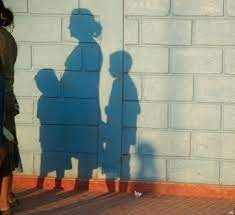
Transnational families can be found all over the world in many different forms – migration can come from many different sources. Some families are forced to become transnational through refugee camps and war zones. Others migrate to find work to abroad because they can make more money to raise the family that way. However these families become transnational, their existence calls into question the notions of citizenship, domesticity, and public and private spaces. For the purposes of this series, I look specifically at the transnational family where the mother has migrated to work as a domestic.
These migrant women do not fit into the typical notion of citizenship. The ususal connotation of citizenship is one that implies that a person must belong to a nation, and must therefore be protected under its laws and according all the rights and privileges of that nation. This is not the case – these women are often left as outsiders to the society and not given the same rights and privileges as the rest of the society. While these women belong to the society and are necessary for the society to continue to function, they are seen as even below second-class citizens.
This idea of a second-class citizenship is seen in the case of marginalized citizens – in the case of women, LGBT, and non-white minorities. It is the idea of someone who is a citizen (whether by birth or through naturalization) but is still restricted in terms of the rights and freedom one is accorded (Bosniak 2006). The transnational domestic is not given that recognition. She is a member of society without the rights of that society – she exists in a sort of “limbo” between citizenship in her home country (where she is rarely present) and citizenship in the host country. She is contributing to both economies through her labor, yet cannot reap the benefits in her home country as she is not physically present and cannot reap the benefits in the host country because she is not a full citizen.
Often present in the country on a work visa or illegally (either or which designates a supposed transient situation where the domestic will be present in the nation for a limited time) the transnational domestic is meant to be invisible. Praised for their caring, loving, and docile natures, transnational women from countries such as Mexico and the Philippines, are expected to do their care duties without bringing a lot of attention to themselves – they are to fade into the background. Personal attendants for the physically disabled are expected to maintain the illusion of independence for their client by blending into the surroundings and not calling attention to themselves.
Part of this invisibility is a result of the need to keep the public and private spaces separate. Domestic workers are let into the most private aspects of people lives, especially in the case of personal attendants. By being invisible, the illusion is maintained that there still exists a private space – that one has not made the private public by hiring out household duties (Ehrenreich and Hochschild 2002). The idea of domesticity is challenged.
This change in domesticity stems from the desire to resist the idea that one cannot do it all. American women are expected to excel in the workforce and to retain all the duties of a household – she is supposed to be a superwoman. The hiring of a domestic worker undermines that idea that she can do it all with grace – by hiring a domestic she is admitting failing in some sense. Whether or not this is true is irrelevant; the fear of failure is planted in the minds of women. By bringing someone into the private sphere and admitting that one needs help, the private becomes a professional space (hence the reason why women clean before the cleaning lady comes – leaving a dirty house for the cleaning lady to clean is admitting defeat and providing an unprofessional environment in which one can be judged for her ability to perform her gender).
As a foreigner, she brings a new perspective into the domestic world (Honig 2001). She challenges the standards of thinking about such private, taken for granted issues such as citizenship and the public/private. Her status as a transnational citizen challenges the status quo and the way we view domestic labor, and brings into the discussion the idea of a new universal citizen. What should that look like, and what does it mean to bring the idea of citizenship into the household? How does that transform the view of transnational domestic labor? And how do these challenges play out in the home country/family?
(Image Credit: COFACE Families Europe)